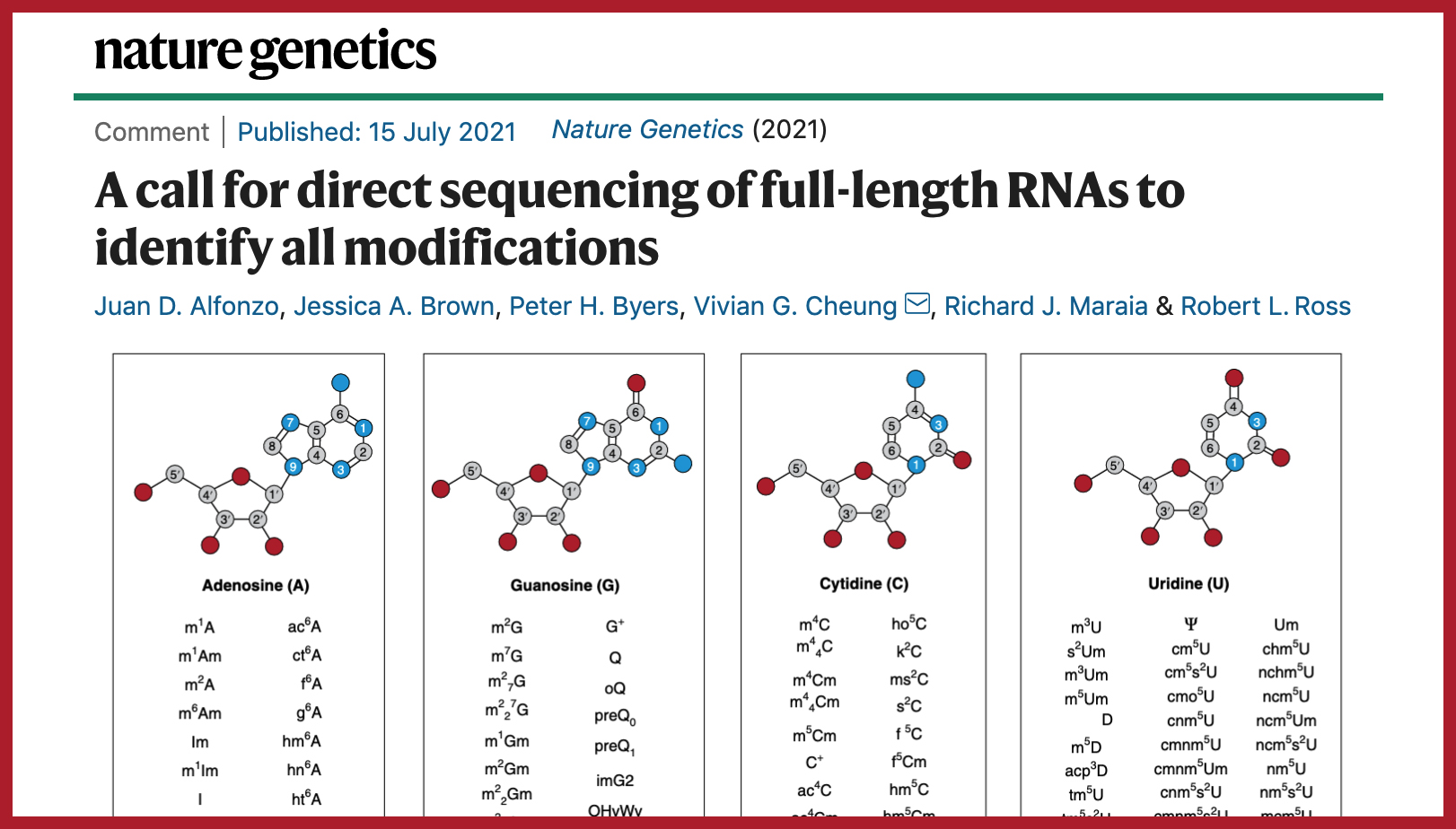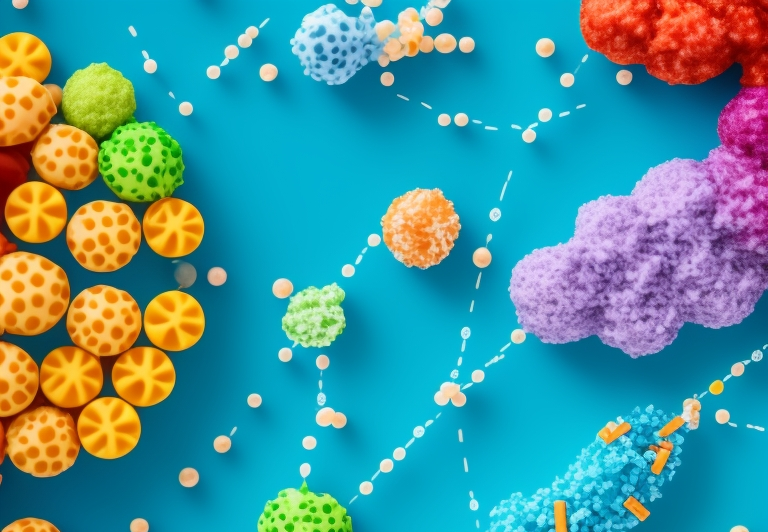A call for direct sequencing of full-length RNAs to identify all modification
 For most organisms, DNA sequences are available, but the complete RNA sequences are not. Here, we call for technologies to sequence full-length RNAs with all their modifications. Article co-authored by Dr. Vivian Cheung, member of our Center.
For most organisms, DNA sequences are available, but the complete RNA sequences are not. Here, we call for technologies to sequence full-length RNAs with all their modifications. Article co-authored by Dr. Vivian Cheung, member of our Center.
